
An Anti-racist Imperative for Public Health Data
How can data integration platforms and strategies be designed to do no harm?



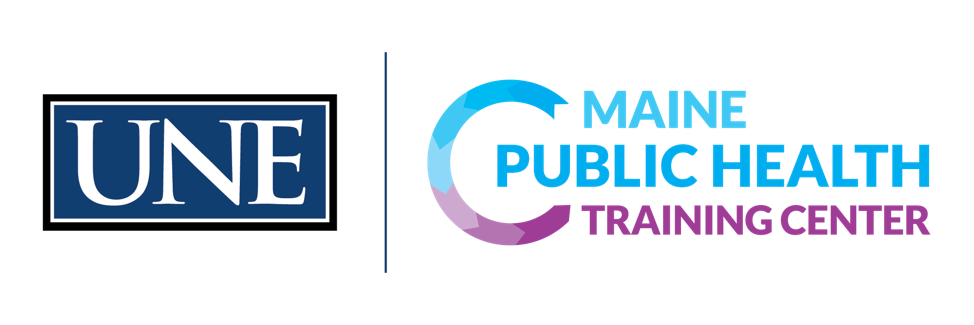

Register
Course Information
- Audience: Public health and health professions students and faculty, interested community members
- Format: Online Webinar
- Date/Time: 3rd December 2020, 12:00 pm-1:30 pm ET, 9:00 am-10:30 am PT
- Price: Free
- Length: 1 hour
- Credential(s) eligible for contact hours: Sponsored by New England Public Health Training Center (NEPHTC), a designated provider of continuing education contact hours (CECH) in health education by the National Commission for Health Education Credentialing, Inc. This program is designated for Certified Health Education Specialists (CHES) and/or Master Certified Health Education Specialists (MCHES) to receive up to 1 total Category I continuing education contact hours. Maximum advanced-level continuing education contact hours are 1. Provider ID: 1131137 Event ID: 12032020.
If you are not seeking CHES/MCHES contact hours, if you complete the evaluation, you will receive a Certificate of Completion. The Certificate will include the length of the course. - Competencies: Data Analytics and Assessment Skills
- Learning Level: Awareness
- Companion Trainings: None
- Supplemental materials:Session PowerPoint
- Pre-requisites: None
About this Webinar
The endeavor to digitize processes and centralize data that assess risk and grant access to vital community resources is inherently a negotiation in power, ownership, and social control. This session will explore the power dynamics inherent in public health data collection and how data integration platforms can functionally "do no harm."
What you'll learn
At the end of the course, participants will be able to:
- Describe the ways public health data can be used to address and reinforce social inequality
- Articulate anti-racist approaches to public health data collection
Subject Matter Expert

Rhea Boyd, MD, MPH
Pediatrician, Public Health Advocate, and Scholar
Rhea Boyd MD, MPH is a pediatrician, public health advocate, and scholar who writes and teaches on the relationship between structural racism, inequity and health. She has a particular focus on the child and public health impacts of harmful policing practices and policies. She serves as the Chief Medical Officer of San Diego 211, working with navigators to address social needs of San Diegans impacted by chronic illness and poverty. And she is the Director of Equity and Justice for The California Children's Trust, an initiative to advance mental health access to children and youth across California. Dr. Boyd graduated cum laude with a B.A. in Africana Studies and Health from the University of Notre Dame. She earned a M.D. at Vanderbilt University School of Medicine and completed her pediatric residency at University of California, San Francisco. In 2017, Dr. Boyd graduated from the Commonwealth Fund Mongan Minority Health Policy Fellowship at Harvard University’s School of Public Health, earning a Master of Public Health.
Registration
Select the Enroll Me button below to register for this webinar. If you have any trouble accessing the webinar, contact support@nephtc.org.
Acknowledgement: This project is/was supported by the Health Resources and Services Administration (HRSA) of the U.S. Department of Health and Human Services (HHS) under grant number UB6HP31685 “Regional Public Health Training Center Program.” This information or content and conclusions are those of the author and should not be construed as the official position or policy of, nor should any endorsements be inferred by HRSA, HHS or the U.S. Government.
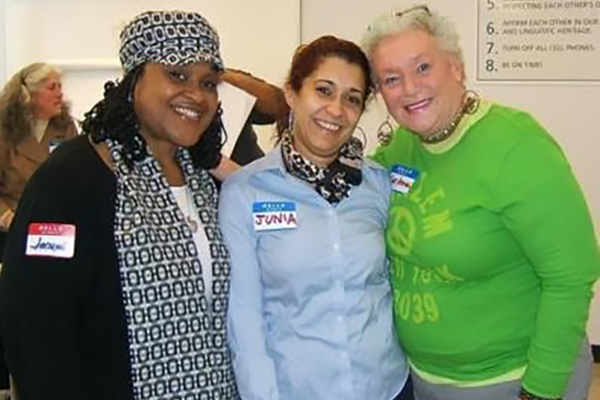
An examination of Harm Reduction during the COVID 19 Pandemic through an Anti -Racist Lens: A Discussion Based Webinar
How do we think about Harm Reduction and Behavior Change on an individual level within a society defined by institutional racism and structural inequity?

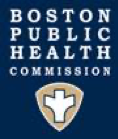
Register
Course Information
- Audience: Community Health Workers and public health professionals working with medically underserved communities
- Format: Webinar
- Date/Time: June 24, 2020
11:00 AM - 12:00 PM EST - Price: Free
- Length: 1 hour
- Credential(s) eligible for contact hours: If you complete the evaluation, you will receive a Certificate of Completion. The Certificate will include the length of the course.
- Competencies: Community Partnership Skills
- Learning Level: Awareness
- Companion Trainings: Conversations around Chronic Care: Introduction to Motivational Interviewing
Trauma Informed Care to Support Health and Well-Being: Part One
Trauma Informed Care to Support Health and Well-Being: Part Two - Supplemental materials:Session PowerPoint
- Pre-requisites None
About this Webinar
Instead of an all-or-nothing approach to risk prevention, we need an approach that allows people to live their lives while reducing their risk. What does harm reduction look like for the coronavirus?
What you'll learn
At the end of the course, participants will be able to:
- Define the principles of harm reduction as a public health approach
- Apply the principle of harm reduction to the current COVID -19 pandemic
- Discuss the intersection of harm reduction and institutional racism
Subject Matter Expert
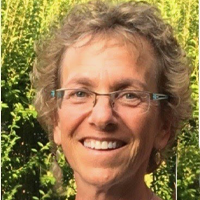
Linette Liebling, MSPH
Linette Liebling, MSPH, has worked as a Public Health educator for over three decades. Ms. Liebling trains CHWs, clinic and hotline counselors, case managers, school health educators, youth workers, and other community health educators on strategies of behavior change as well as various sexual health topics. She is also an Adjunct Instructor for the Psychology Department at Wheaton College where she has taught since 2006.
Registration
Select the Enroll Me button below to register for this webinar. If you have any trouble accessing the webinar, contact support@nephtc.org.
Acknowledgement: This project is/was supported by the Health Resources and Services Administration (HRSA) of the U.S. Department of Health and Human Services (HHS) under grant number UB6HP31685 “Regional Public Health Training Center Program.” This information or content and conclusions are those of the author and should not be construed as the official position or policy of, nor should any endorsements be inferred by HRSA, HHS or the U.S. Government.
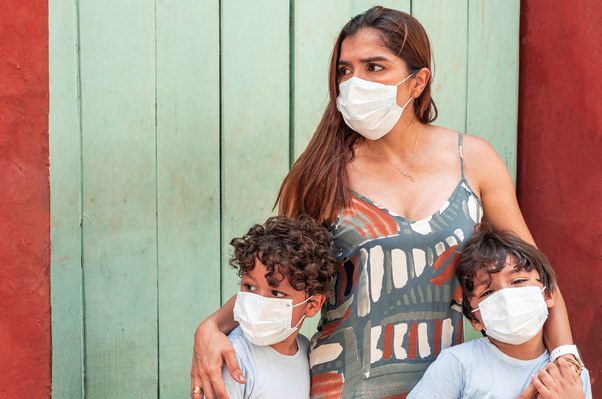
COVID Latinx Disparities
What
is the impact of COVID-19 on the Hispanic/Latinx community, and how can public
health professionals help?


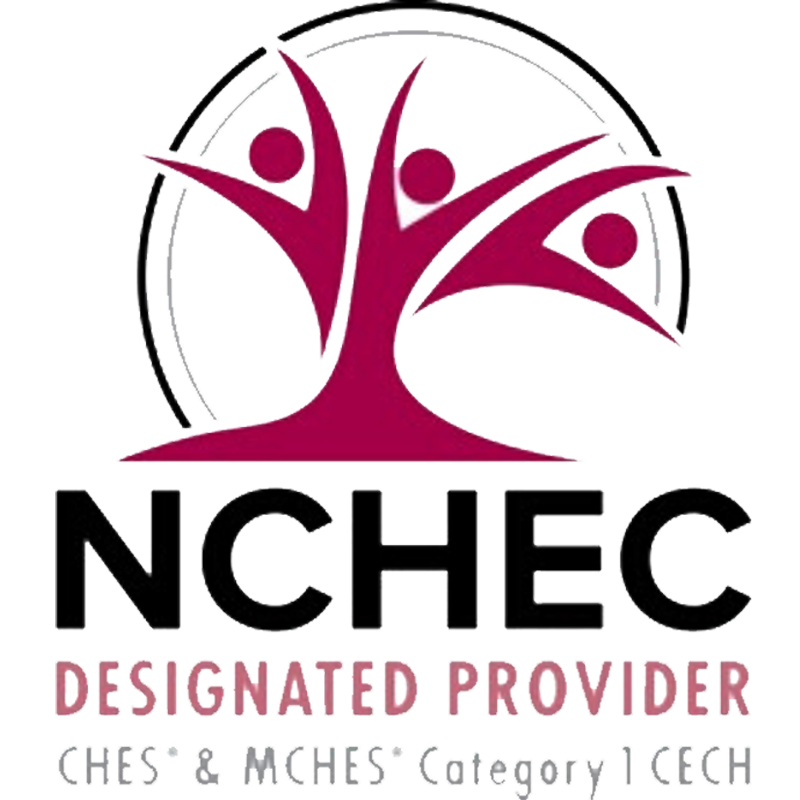
Course Information
- Audience: Public health professionals
- Format: Webinar
- Date/Time: January 19, 2022
12:00 - 1:00 PM EST - Price: Free
- Length: 1 hour
- Credential(s) eligible for contact hours: Sponsored by New England Public Health Training Center (NEPHTC), a designated provider of continuing education contact hours (CECH) in health education by the National Commission for Health Education Credentialing, Inc. This program is designated for Certified Health Education Specialists (CHES) and/or Master Certified Health Education Specialists (MCHES) to receive up to 1 total Category I continuing education contact hour. Maximum advanced-level continuing education contact hour is 1. Provider ID: 1131137 Event ID: PM1131137_01192022.
If you are not seeking CHES/MCHES contact hours, if you complete the evaluation, you will receive a Certificate of Completion. The Certificate will include the length of the course.
- Competencies: Data Analytics and Assessment Skills
- Learning Level: Awareness
- Companion Trainings: None
- Supplemental materials:None
- Pre-requisites None
About this Webinar
In this webinar, we will discuss the latest evidence about the trajectory of the COVID-19 epidemic, its impact on Hispanic/Latinx communities, and actions that we can take in our own areas of practice to address these health disparities.
What you'll learn
At the end of the course, participants will be able to:
- Conceptualize systems and structures that lead to COVID-19 disparities in the Hispanic/Latinx community
- Describe effective approaches to addressing COVID-19 disparities
- Discuss the latest evidence on the COVID-19 epidemic’s impact on Hispanic/Latinx communities
- Identify potential points of synergy with COVID-19 and other health needs in the Hispanic/Latinx community
This webinar will be recorded and made available within 2 business days of the webinar close. Please log in to view the recording in the section "View a Recording of the Webinar. "
Subject Matter Expert
Matt Murphy
MD
Dr. Matthew Murphy is Assistant Professor of Medicine and Behavioral and Social Sciences at Brown University. He lives in a bilingual and bicultural household where Spanish is the primary language of communication. His work has been supported by the World Health Organization, The Pan American Health Organization, the NIH, the CDC and the European Commission. He was a Fulbright Research Fellow in Morocco where he led research on the impact of the country’s National HIV Program. He completed the European Master’s of Public Health as an Erasmus Mundus Fellow at the Andalusian School of Public Health in Granada, Spain and France’s National School of Public Health in Rennes, France. He was also named a Yale/Stanford Global Health Scholar and worked in the Infectious Diseases Department of the Universidad del Valle in Cali, Colombia. Dr. Murphy has worked extensively in Latin America with Brown University collaborating sites, the Pan American Health Organization as well as non-governmental organizations. As the Medical Director of Open Door Health, an Initiative of the Rhode Island Public Health Institute, he oversaw the implementation of a community adapted COVID-19 testing program which was described in the CDC’s Emerging Infectious Diseases Journal. He also supported the COVID-19 response in the state’s correctional system co-authoring several related publications in the Lancet among other high impact journals.
Registration
Select the Enroll Me button below to register for this webinar. If you have any trouble accessing the webinar, contact support@nephtc.org.
Acknowledgement: This project is/was supported by the Health Resources and Services Administration (HRSA) of the U.S. Department of Health and Human Services (HHS) under grant number UB6HP31685 “Regional Public Health Training Center Program.” This information or content and conclusions are those of the author and should not be construed as the official position or policy of, nor should any endorsements be inferred by HRSA, HHS or the U.S. Government.
* Yale School of Public Health, Office of Public Health Practice, a New England Public Health Training Center partner, is a designated provider of continuing education contact hours (CECH) in health education by the National Commission for Health Education Credentialing, Inc. All CHES credit inquiries are managed by YSPH

Health and Social Equity in Indigenous Communities in Maine
How will we respond to the uncomfortable truths about the underlying inequity faced by tribal nations of Maine? How can we heal from that history together?

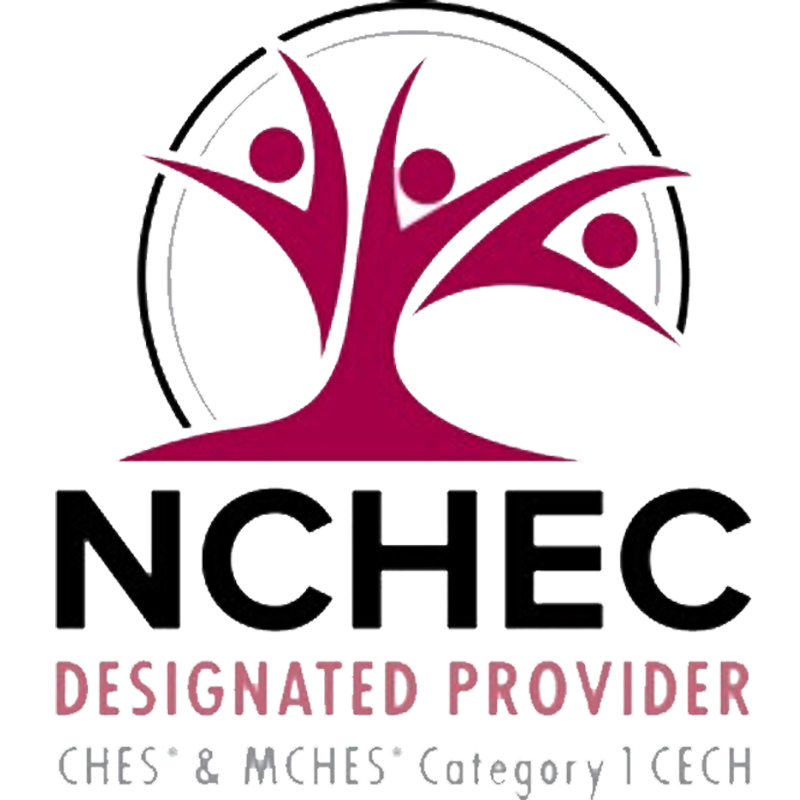
Register
Course Information
- Audience: Public Health Professionals, Community Health Workers
- Format: Webinar
- Date/Time: Tuesday, October 12th 2021 8:30 AM – 9:30 AM EST.
- Price: Free
- Length: 1 hour
- Credential(s) eligible for contact hours: Sponsored by New England Public Health Training Center (NEPHTC), a designated provider of continuing education contact hours (CECH) in health education by the National Commission for Health Education Credentialing, Inc. This program is designated for Certified Health Education Specialists (CHES) and/or Master Certified Health Education Specialists (MCHES) to receive up to 1 total Category I continuing education contact hours. Maximum advanced-level continuing education contact hours are 0. Provider ID: 1131137 Event ID: SS1131137_HSEICM
If you are not seeking a CHES/MCHES contact hours, if you complete the post-test and evaluation, you will receive a Certificate of Completion. The Certificate will include the length of the course.
- Competencies: Health Equity Skills
- Learning Level: Awareness
- Companion Trainings: None
- Supplemental materials:None
- Pre-requisites: None
About this Webinar
The region called Maine is the ancestral territory of indigenous communities. The COVID 19 pandemic has been triggering for tribal nations. Disease was one of the first weapons used against indigenous people, whether understood or not, diminishing and devastating native populations and aiding the taking of land. What does moving forward together look like?
What you'll learn
At the end of the course, participants will be able to:
- Restate perspectives of Indigenous Communities from personal narratives
- Explain why social inequity leads to certain outcomes
- Identify basic knowledge of tribal nations in Maine
Subject Matter Experts

Maulian Dana
Tribal Ambassador Maulian Dana presents issues important to Penobscot Nation and wide native and non-native audiences. Her topics include land use, water rights, trial sovereignty, eradication of native American mascots, and establishing Indigenous People’s Day. Dana was born on the Penobscot Indian Island Reservation on May 17, 1984, and is one of five children. She is the daughter of former Penobscot Nation Chief Barry Dana, who served from 2000 to 2004. She attended the University of Maine with a focus in political science. In 2005 she was awarded the Margaret Chase Smith Public Policy Scholarship and went on to graduate in 2006.[2] She serves on the board of the Maine Center for Economic Policy, as co-chair of Maine Climate Councils Equity subcommittee, and as co-chair of the Permanent Commission on the Status of Racial Indigenous and Maine Tribal Populations.
Registration
Select the Enroll Me button below to register for this recording. If you have any trouble accessing the recording, contact support@nephtc.org.
Acknowledgement: This project is/was supported by the Health Resources and Services Administration (HRSA) of the U.S. Department of Health and Human Services (HHS) under grant number UB6HP31685 “Regional Public Health Training Center Program.” This information or content and conclusions are those of the author and should not be construed as the official position or policy of, nor should any endorsements be inferred by HRSA, HHS or the U.S. Government.

Race as a Social Construct in Data and Practice
How has does race impact data and practice?




Register
Course Information
- Audience: Public health professionals, medical professionals, researchers
- Format: Webinar
- Date/Time: Thursday, June 30th 2022
9:00 AM – 12:30 PM EST - Price: Free
- Length: 2 part series, 3.5 hours each
- Credential(s) eligible for contact hours: Sponsored by New England Public Health Training Center (NEPHTC), a designated provider of continuing education contact hours (CECH) in health education by the National Commission for Health Education Credentialing, Inc. This program is designated for Certified Health Education Specialists (CHES) and/or Master Certified Health Education Specialists (MCHES) to receive up to 3.5 total Category I continuing education contact hours. Maximum advanced-level continuing education contact hours are 0. Provider ID: 1131137 Event ID: PM1131137_06302022.
If you are not seeking a CHES/MCHES contact hours, if you complete the post-test and evaluation, you will receive a Certificate of Completion. The Certificate will include the length of the course.
- Competencies: Health Equity Skills
- Learning Level: Awareness
- Companion Trainings: The History and Contemporary Reality of Black Communities in Maine
- Supplemental materials:None
- Pre-requisites: None
About this Webinar
This webinar will explore race as a social construct and its implications in data collection and research. Participants will hear from presenters how the concept of race originated and how to uphold diversity and equity in research and policy, with specific examples of the implications of systemic racism in policies in Maine.
What you'll learn
At the end of the course, participants will be able to:
- Describe race as a social construct
- Explain the implications of race in data collection and research
- Identify two ways to uphold diversity and equity in research and policy
This webinar will be recorded and made available within 2 business days of the webinar close. Please log in to view the recording in the section "View a Recording of the Webinar.
Subject Matter Experts

Winfred Williams, MD
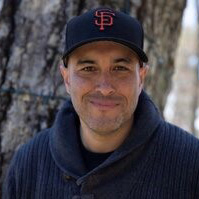
Bruce King
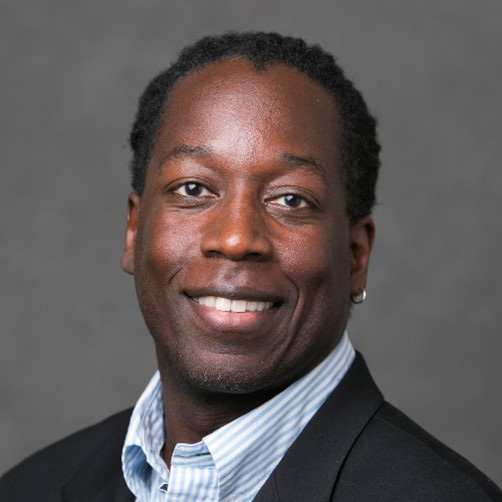
Keith Maddox
Dr. Win Williams is the Associate Chief of the MGH Division of Nephrology and Founding Director of the MGH Center for Diversity and Inclusion. He has a long, foundational track record at MGH in the development of programs to enhance the diversity of the physician workforce and at the Harvard Medical School. Over the past two decades, he has helped develop critical initiatives to support hospital-wide diversity goals. Dr. Williams is also the deputy director of the New England Journal of Medicine. He graduated from Harvard College with a B.A. in Biochemical Sciences. He went on to medical school at the New York University School of Medicine and completed his residency at Brigham and Women's Hospital.
Bruce King is the Co-Executive Director of Maine Inside Out. His focus is on the leadership, growth and community outreach for MIO. Bruce’s lived experience as a previously incarcerated individual provides him with the insight critical to building connection and promoting healing for the people and communities he interacts with. Prior to joining MIO, Bruce worked in the fields of substance use disorder and recovery, mentoring and coaching multicultural youth and community building. As a second generation Mexican American, Bruce serves on the Permanent Commission on the Status of Racial, Indigenous and Maine Tribal Populations to address disparate treatment of marginalized ethnic groups and actualize racial justice. He is on the board of Mindbridge and an active member of the Prison Reentry Network.
Keith Maddox earned his A.B. in Psychology from the University of Michigan, and his M.A. and Ph.D. in Social Psychology from the University of California, Santa Barbara. He is a Professor in the Psychology Department at Tufts University, Director of the Tufts University Social Cognition (TUSC) Lab. His research and teaching are focused on exploring social cognitive aspects of stereotyping, prejudice, and discrimination. The long-range goal of this work is to further the understanding of the representation of stereotypic knowledge and its implications for the behavior and treatment of members of stereotyped groups. He is co-Director of the Diversity and Inclusion Leadership Program, has served as the Special Advisor to the Provost for Diversity and Inclusion at Tufts, and has founded an initiative at Tufts that seeks to bring social science evidence to bear on the development and evaluation of programs designed to address the challenges and opportunities associated with diversity, climate, and inclusion in organizations.
Registration
Select the Enroll Me button below to register for this recording. If you have any trouble accessing the recording, contact support@nephtc.org.
Acknowledgement: This project is/was supported by the Health Resources and Services Administration (HRSA) of the U.S. Department of Health and Human Services (HHS) under grant number UB6HP31685 “Regional Public Health Training Center Program.” This information or content and conclusions are those of the author and should not be construed as the official position or policy of, nor should any endorsements be inferred by HRSA, HHS or the U.S. Government.

Raising the Bar: On Racism, Health and Publication Standards
Racism is a root cause of racial health inequities. Yet researchers and journals publish on racial health inequities without mentioning or examining racism. How do we raise this bar?



Register
Course Information
- Audience: Public health faculty, authors, publishers, reviewers, organizations and practitioners who rely on public health publications
- Format: Webinar
- Date/Time: November 19, 2020
12:00 - 1:00 PM EST - Price: Free
- Length: 1 hour
- Credential(s) eligible for contact hours: Sponsored by New England Public Health Training Center (NEPHTC), a designated provider of continuing education contact hours (CECH) in health education by the National Commission for Health Education Credentialing, Inc. This program is designated for Certified Health Education Specialists (CHES) and/or Master Certified Health Education Specialists (MCHES) to receive up to 1 total Category I continuing education contact hours. Maximum advanced-level continuing education contact hours are 1. Provider ID: 1131137 Event ID: PM1131137_11192020.
If you are not seeking CHES/MCHES contact hours, if you complete the evaluation, you will receive a Certificate of Completion. The Certificate will include the length of the course. - Competencies: Health Equity Skills
- Learning Level: Awareness
- Companion Trainings: None
- Supplemental materials:Session PowerPoint
- Pre-requisites None
About this Webinar
Dr. Boyd will explore racism as a root cause of racial health inequities. Given this foundation, she will issue a challenge to researchers, journals, reviewers, and readers to engage racism within their analysis of racial health inequities.
What you'll learn
At the end of the webinar, participants will be able to:
- List 2 concrete ways racism impacts health
- Analyze racial disparities emerging during the US COVID19 pandemic and the racial disparities evidenced by disproportionate police violence, within the history of racism in the US
- Propose new publication standards that engage racism as a root cause of racial health inequities
Subject Matter Expert

Rhea Boyd MD, MPHPediatrician, Public Health Advocate, and Scholar
Rhea Boyd MD, MPH is a pediatrician, public health advocate, and scholar who writes and teaches on the relationship between structural racism, inequity and health. She has a particular focus on the child and public health impacts of harmful policing practices and policies. She serves as the Chief Medical Officer of San Diego 211, working with navigators to address social needs of San Diegans impacted by chronic illness and poverty. And she is the Director of Equity and Justice for The California Children's Trust, an initiative to advance mental health access to children and youth across California.
Dr. Boyd graduated cum laude with a B.A. in Africana Studies and Health from the University of Notre Dame. She earned a M.D. at Vanderbilt University School of Medicine and completed her pediatric residency at University of California, San Francisco. In 2017, Dr. Boyd graduated from the Commonwealth Fund Mongan Minority Health Policy Fellowship at Harvard University’s School of Public Health, earning an M.P.H.
Registration
Select the Enroll Me button below to register for this webinar. If you have any trouble accessing the webinar, contact support@nephtc.org.
Acknowledgement: This project is/was supported by the Health Resources and Services Administration (HRSA) of the U.S. Department of Health and Human Services (HHS) under grant number UB6HP31685 “Regional Public Health Training Center Program.” This information or content and conclusions are those of the author and should not be construed as the official position or policy of, nor should any endorsements be inferred by HRSA, HHS or the U.S. Government.
* Yale School of Public Health, Office of Public Health Practice, a New England Public Health Training Center partner, is a designated provider of continuing education contact hours (CECH) in health education by the National Commission for Health Education Credentialing, Inc. All CHES credit inquiries are managed by YSPH

Reproductive Justice: A Paradigm Shift for Women of Color
How can a public health practitioner/professional support reproductive justice?




Register
Course Information
- Audience: Public Health Practitioners, Community Health Workers interested in reproductive justice
- Format: Online Webinar
- Date/Time: December 9, 2020
12:00 - 1:00 PM EST - Price: Free
- Length: 1 hour
- Credential(s) eligible for contact hours: Sponsored by New England Public Health Training Center (NEPHTC), a designated provider of continuing education contact hours (CECH) in health education by the National Commission for Health Education Credentialing, Inc. This program is designated for Certified Health Education Specialists (CHES) and/or Master Certified Health Education Specialists (MCHES) to receive up to 1 total Category I continuing education contact hours. Maximum advanced-level continuing education contact hours are 1. Provider ID: 1131137 Event ID:
PM1131137_12092020.
If you are not seeking CHES/MCHES contact hours, if you complete the evaluation, you will receive a Certificate of Completion. The Certificate will include the length of the course. - Competencies: Leadership and Systems Thinking Skills
- Learning Level: Awareness
- Companion Trainings: None
- Supplemental materials:Session PowerPoint
- Pre-requisites None
About this Webinar
What is the potential paradigm shift of applying human rights standards to your public health practice?
What you'll learn
At the end of the webinar, participants will be able to:
- Define reproductive justice theoretical framework
- Apply 3 questions to identify changes necessary for using reproductive justice theoretical framework in your public health practice
- Identify 2 websites for definitive resources for reproductive justice
Subject Matter Expert

Loretta RossAssociate Professor at Smith College
Loretta Ross is a Visiting Associate Professor at Smith College in the Program for the Study of Women and Gender for the 2019-2021 academic years.
She started her career in activism and social change in the 1970s, working at the National Football League Players’ Association, the D.C. Rape Crisis Center, the National Organization for Women (NOW), the National Black Women’s Health Project, the Center for Democratic Renewal (National Anti-Klan Network), the National Center for Human Rights Education, and SisterSong Women of Color Reproductive Justice Collective, until retiring as an organizer in 2012 to teach about activism. Her passion transforms anger into social justice to change the world.
Her most recent books are Reproductive Justice: An Introduction co-written with Rickie Solinger, and Radical Reproductive Justice: Foundations, Theory, Practice, Critique, both published in 2017. Her forthcoming book is Calling In the Calling Out Culture: Detoxing Our Movement due out in 2020.
She has appeared on CNN, BET, "Lead Story," "Good Morning America," "The Donahue Show," the National Geographic Channel, and "The Charlie Rose Show.” She has been quoted in the New York Times, Time Magazine, The Los Angeles Times, and the Washington Post, among others.
Her activism began as a rape and incest survivor as a teen mother. She graduated college at age 55. She is from San Antonio, TX and lives in Atlanta, GA. She is a mother and grandmother, and an avid pinochle player. Her dream is to see Venus and Serena Williams play tennis in person.
Registration
Select the Enroll Me button below to register for this webinar. If you have any trouble accessing the webinar, contact support@nephtc.org.
Acknowledgement: This project is/was supported by the Health Resources and Services Administration (HRSA) of the U.S. Department of Health and Human Services (HHS) under grant number UB6HP31685 “Regional Public Health Training Center Program.” This information or content and conclusions are those of the author and should not be construed as the official position or policy of, nor should any endorsements be inferred by HRSA, HHS or the U.S. Government.
* Yale School of Public Health, Office of Public Health Practice, a New England Public Health Training Center partner, is a designated provider of continuing education contact hours (CECH) in health education by the National Commission for Health Education Credentialing, Inc. All CHES credit inquiries are managed by YSPH

Systemic Inequities that Impact Black Lives and Communities of Color in CT
What are some micro examples individuals can take to promote a more just community?

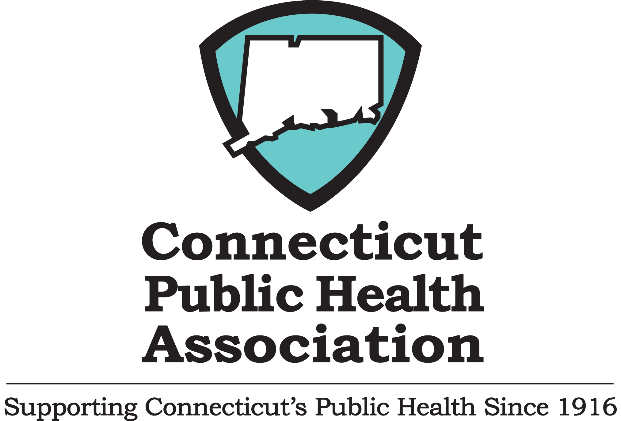

Register
Course Information
- Audience: Public Health workforce members interested in Systemic Inequities for black lives
- Format: Recorded Webinar
- Date/Time: Recorded on November 10 2020
- Price: Free
- Length: 55 min
- Credential(s) eligible for contact hours: Sponsored by New England Public Health Training Center (NEPHTC), a designated provider of continuing education contact hours (CECH) in health education by the National Commission for Health Education Credentialing, Inc. This program is designated for Certified Health Education Specialists (CHES) and/or Master Certified Health Education Specialists (MCHES) to receive up to 1 total Category I continuing education contact hours. Maximum advanced-level continuing education contact hours are 1. Provider ID: 1131137 Event ID: SS1131137_SIIBL.
If you are not seeking a CHES/MCHES contact hours, if you complete the post-test and evaluation, you will receive a Certificate of Completion. The Certificate will include the length of the course. - Competencies: Health Equity Skills
- Learning Level: Awareness
- Companion Trainings:
- Supplemental materials:None
- Pre-requisites: None
About this Recording
When looking at the disproportionate impact in health disparities on communities of color, the black community's experience can be an indicator of what is happening to all marginalized communities. It is possible that empathy is hard to have as a member of a less impacted community. If you don't see it and don't experience it, it seems you don't feel it.
What you'll learn
At the end of the recording, participants will be able to:
- List four ways in which Black and Brown communities have been disadvantaged more than white communities due to the COVID-19 pandemic
- Name three health impacts of not having stable and safe housing
- Name two actions on housing policies that can reduce housing inequity
- Name three ways that the Justice System can reduce racial injustice
Subject Matter Experts

Dr. Danielle Cooper
Karen DuBois-Walton
Linda K. Barry
Dr. Danielle Cooper is an Associate Professor of Criminal Justice and the Director of Research at the Tow Youth Justice Institute at the University of New Haven. Dr. Cooper received her BS in Justice Systems (with a minor in Business Administration) in 2009 and her MA in Criminology from the University of Florida in 2011. She received her Ph.D. in Criminology (with a minor in Organizational Leadership for Nonprofits) from the University of Florida in 2015.
In addition to her work as a Professor and the Director of Research at UNH, she is also a Certified Prevention Professional who works with nonprofits and community organizations as a prevention trainer and evaluation consultant. Through her work in the community, she has collaborated with key stakeholders, such as youth and their parents, law enforcement, mental health professionals, and youth-serving organizations.
Karen DuBois-Walton currently serves as the President of the Elm City Communities/Housing Authority of the City of New Haven and President of The Glendower Group, LLC (the development affiliate of HANH) and 360 Management Group, Inc. (the property management affiliate) responsible for administrative, programmatic and policy direction of the public housing, housing choice voucher program, finance and planning, and development activities.
Dr. DuBois-Walton resides in New Haven. She is actively involved in a number of non-profit boards dedicating time to creating greater equity for those who are marginalized. She leads efforts within New Haven and the Region to remove barriers to fair housing, reverse housing segregation patterns, and to invest in under-resourced communities.
Linda K. Barry, M.D., M.P.H., FACS is a board-certified liver and pancreas surgeon with a unique background in both clinical and basic science research. As an Associate Professor of Surgery, Dr. Barry practices and teaches at the University of Connecticut Medical School and holds the position of Director of the Office of Multicultural and Community. She previously served as Assistant Director and Chief Operating Officer of the Connecticut Institute for Clinical and Translational Science (CICATS) at the University of Connecticut, Co-Director for the CICATS Pilot Program for Collaborative Translational and Clinical Research, Director of the Young Innovative Investigator Program, and Director of the CICATS M1 Mentorship Program. Dr. Barry’s professional experience and life’s work has been in addressing health disparities in health care delivery and research.
Registration
Select the Enroll Me button below to register for this recording. If you have any trouble accessing the recording, contact support@nephtc.org.
Acknowledgement: This project is/was supported by the Health Resources and Services Administration (HRSA) of the U.S. Department of Health and Human Services (HHS) under grant number UB6HP31685 “Regional Public Health Training Center Program.” This information or content and conclusions are those of the author and should not be construed as the official position or policy of, nor should any endorsements be inferred by HRSA, HHS or the U.S. Government.
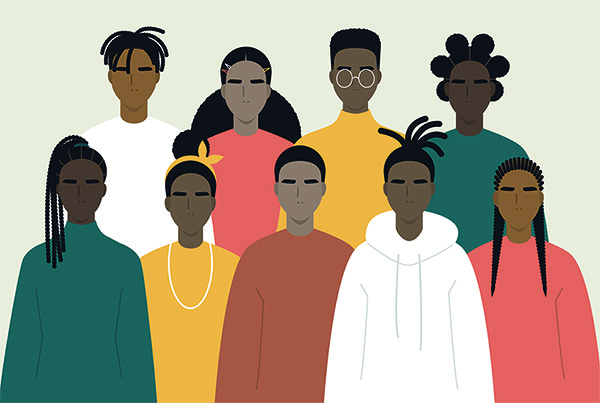
The History and Contemporary Reality of Black Communities in Maine
How has Maine’s history of racism continued to impact communities today?




Register
Course Information
- Audience: Public health professionals, medical professionals, researchers
- Format: Webinar
- Date/Time: Wednesday, June 29th 2022
9:00 AM – 12:30 PM EST - Price: Free
- Length: 2 part series, 3.5 hours each
- Credential(s) eligible for contact hours: Sponsored by New England Public Health Training Center (NEPHTC), a designated provider of continuing education contact hours (CECH) in health education by the National Commission for Health Education Credentialing, Inc. This program is designated for Certified Health Education Specialists (CHES) and/or Master Certified Health Education Specialists (MCHES) to receive up to 3.5 total Category I continuing education contact hours. Maximum advanced-level continuing education contact hours are 0. Provider ID: 1131137 Event ID: PM1131137_06292022.
If you are not seeking a CHES/MCHES contact hours, if you complete the post-test and evaluation, you will receive a Certificate of Completion. The Certificate will include the length of the course.
- Competencies: Health Equity Skills
- Learning Level: Awareness
- Companion Trainings: Race as a Social Construct in Data and Practice
- Supplemental materials:None
- Pre-requisites: None
About this Webinar
Participants will learn about the history of slavery and racism in Maine, including the role of eugenics and the term Vacationland. Presenters will talk about our shared ancestry and how the slavery has impacted the way the world functions today. Participants will also learn specific examples of racism and how it plays out in communities.
What you'll learn
At the end of the course, participants will be able to:
- Describe how Maine’s history with slavery has impacted genocide, immigration, disinformation and racism in American culture.
- Describe the hidden history of black communities in Maine.
Subject Matter Experts

Myron M. Beasley, PhD
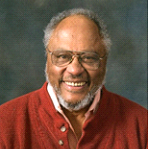
Bob Greene
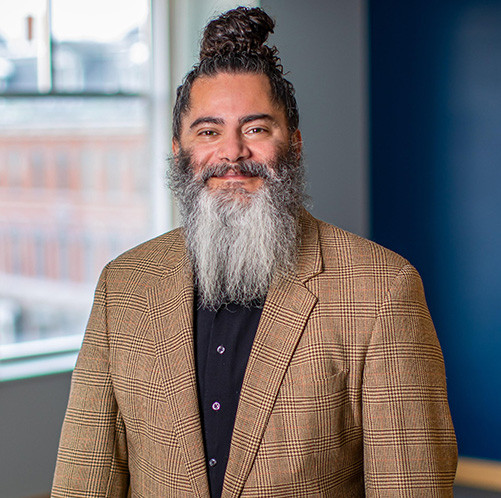
Pedro Vazquez
Myron M. Beasley, Ph.D. is Associate Professor and Chair of American Studies at Bates College. His ethnographic research explores the intersection of cultural politics, material culture and social change. His book, Disturbers of the peace: Performance, Art, and politics of the African Diaspora is currently in press by Routledge. Having conducted fieldwork in Morocco, Haiti, and Brazil he writes about art and food and the constructions of identity and culture. He is also an international curator and he is a trustee of the Maine Historic Society. He has been recognized with distinguished awards and fellowships by the Andy Warhol Foundation, the Whiting Foundation, National Endowment for the Humanities, the Kindling Fund, The Davis Family Foundation, the Reed Foundation, and Dorathea and Leo Rabkin Foundation. His writing appears in Liminalities: The Journal of Performance Studies, The Journal of Poverty, Text and Performance Quarterly, Museum & Social Issues, The Journal of Curatorial Studies and Performance Research, and Gastronomica.
Bob Greene is a native of Portland and the eighth generation of his family to be born in Cumberland County. His roots in Maine stretch back into the 1700s. After graduating from Portland High, Bob went off to college and a career as a journalist, covering among other things airplane crashes, Mississippi River floods and the funeral of Dr. Martin Luther King Jr. He has met three presidents: Harry Truman, Lyndon Baines Johnson and Robert Mugabe of Zimbabwe. And, as The Associated Press Tennis Writer, Bob traveled the world covering the sport. After retiring he returned home to Maine where his genealogical research has led to his deep knowledge about Maine’s Black history. He currently teaches a Black History of Maine course at OLLI (Osher Lifelong Learning Institute} at the University of Southern Maine. Bob also is the 2021 recipient of the Maine Historical Society’s Neal Allen Award, which is presented each year for exceptional contributions to Maine History.
Pedro A. Vázquez (he/him/his) is a community leader and organizer holding multiple roles dedicated to abolitionism, anti-racism, and uplifting of the community. His work highlights the need for just, equitable, diverse, and inclusive initiatives in all structures of society and demands accountability to aim beyond the cosmetic. A father of 6, he specifically engages with young people in recognition of their brilliance and natural ability to lead.
Registration
Select the Enroll Me button below to register for this recording. If you have any trouble accessing the recording, contact support@nephtc.org.
Acknowledgement: This project is/was supported by the Health Resources and Services Administration (HRSA) of the U.S. Department of Health and Human Services (HHS) under grant number UB6HP31685 “Regional Public Health Training Center Program.” This information or content and conclusions are those of the author and should not be construed as the official position or policy of, nor should any endorsements be inferred by HRSA, HHS or the U.S. Government.

The Maliseet Food Sovereignty Initiative: Partnership to Promote Food Sovereignty and Food Security
What are some tangible strategies for implementing food sovereignty, and nutrition, at the community level and how might the program coordinate with community thoughts on traditional food issues?


Register
Course Information
- Audience: Public Health Professionals, Community Health Workers
- Format: Webinar
- Date/Time: Tuesday, October 12th 2021 9:40 AM – 10:10 AM EST.
- Price: Free
- Length: 30 minutes
- Credential(s) eligible for contact hours: Sponsored by New England Public Health Training Center (NEPHTC), a designated provider of continuing education contact hours (CECH) in health education by the National Commission for Health Education Credentialing, Inc. This program is designated for Certified Health Education Specialists (CHES) and/or Master Certified Health Education Specialists (MCHES) to receive up to 1 total Category I continuing education contact hours. Maximum advanced-level continuing education contact hours are 1. Provider ID: 1131137 Event ID: SS1131137_MFSIIf you are not seeking a CHES/MCHES contact hours, if you complete the post-test and evaluation, you will receive a Certificate of Completion. The Certificate will include the length of the course.
- Competencies: Health Equity Skills
- Learning Level: Awareness
- Companion Trainings: None
- Supplemental materials:None
- Pre-requisites: None
About this Webinar
The concept of food sovereignty has developed within Indigenous communities and is broadly applicable. It offers a framework for working toward a greater degree of local autonomy over food production and food access, alleviating food insecurity, and fostering a culture of environmental justice. While food sovereignty has received increased attention in recent years, the focused has largely been on developing a conceptual framework emphasizing local, Indigenous control over food production and distribution in Tribal communities. Less information has been disseminated on practical strategies for implementing food sovereignty initiatives in real-world settings. The Houlton Band of Maliseet Indians (HBMI) has launched a food sovereignty initiative with the aims of increasing access to nutritious food, improving food security, and strengthening connections to Wabanaki culture through the sharing of traditional approaches to food production, storage, and preparation - including planting edible landscapes, Three Sisters, and sacred medicines. Lessons learned are adding to current knowledge about how to develop, implement, and evaluate a model that is rooted in the principals of food sovereignty and designed to increase access to nutritious food, food security, and connection to traditional culture.
The Initiative is implementing coordinated, culturally-connected strategies including establishing community gardens available to youth, Elders, and over 309 individual households throughout Maliseet territory, as well as foster-children in non-Native households - this represents a reach to over 700 individuals. Youth interns have been engaged in program management, training, and evaluation activities. Opportunities to learn and share knowledge about traditional storage and recipes are being provided to community members. Existing partnerships are being leveraged to develop a sustainable model. Evaluation processes are collecting input from the community to understand the overall impact. Household gardens are being installed for each Tribal housing unit. Additional community gardens will enable food production capacity to increase over the coming years.
What you'll learn
At the end of the recording, participants will be able to:
- Describe the concepts of food sovereignty, food security, and environmental justice
- Describe the main programmatic aspects of the Maliseet Food Sovereignty Initiative
- Discuss strategies for implementing and evaluating a community-based food sovereignty initiative
Subject Matter Experts
Chief Clarissa Sabattis, Houlton Band of Maliseets
Clarissa is a citizen and current elected Chief of the Houlton Band of Maliseet Indians and has served 7 years as councilor and chief. She is deeply rooted in her community’s culture and traditions. Her work has been dedicated to improving the overall health and wellbeing of the Maliseet Nation. Since holding the position of chief, her priorities have included economic development, youth engagement, food sovereignty and strengthening the Maliseet’s overall infrastructure to better meet the needs of the tribe’s citizens. Her efforts at the Maine Legislature to gain rights for the HBMI have been at the forefront of her first four years in office. Prior to her role as Tribal Chief, Clarissa spent nearly a decade working as part of a team establishing and growing the Tribal Public Health Infrastructure for the Wabanaki Tribes in Maine. She has held multiple leadership roles in health care, and tribal public health which have positioned her to be a strong advocate in these areas.
Andrew Pritchard, MPH Lead Program Evaluator, PHRI Consulting
Andrew is an experienced public health professional whose work has focused on program evaluation, research design, data collection and analysis, and project planning and implementation. Andrew’s areas of expertise include issues in rural and minority health, population health, and social determinants of health. His research and evaluation approach is rooted in the principals of Community Based Participatory Research. He has assisted local and state-wide efforts to improve population health and bridge gaps between health care, education, and social service sectors in the following ways:
Registration
Select the Enroll Me button below to register for this recording. If you have any trouble accessing the recording, contact support@nephtc.org.
Acknowledgement: This project is/was supported by the Health Resources and Services Administration (HRSA) of the U.S. Department of Health and Human Services (HHS) under grant number UB6HP31685 “Regional Public Health Training Center Program.” This information or content and conclusions are those of the author and should not be construed as the official position or policy of, nor should any endorsements be inferred by HRSA, HHS or the U.S. Government.










